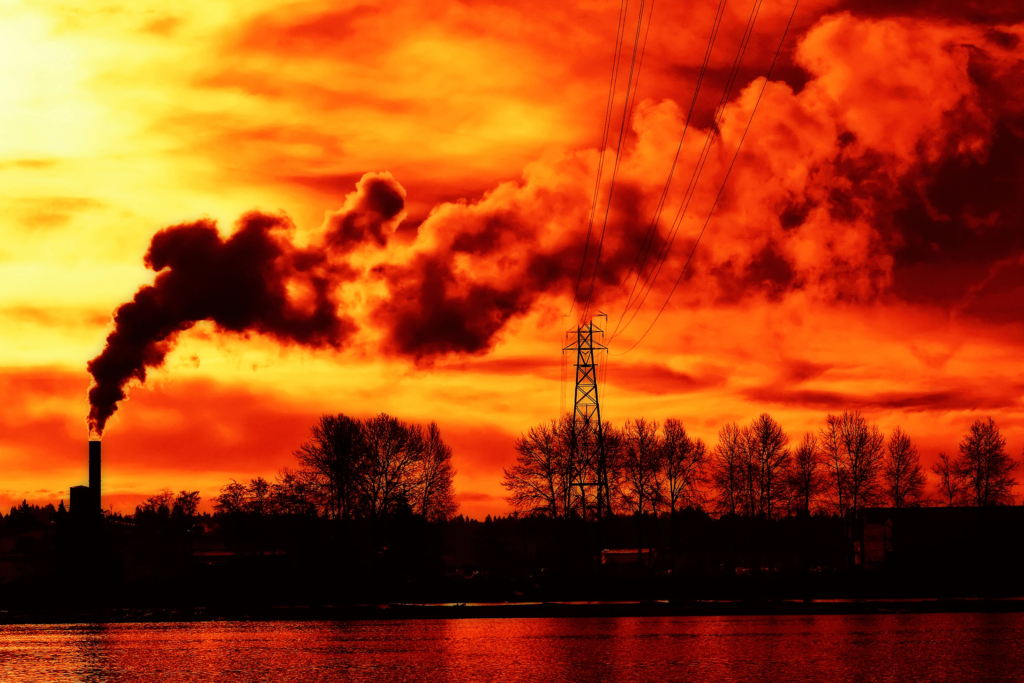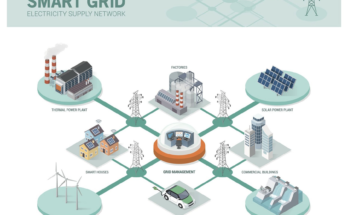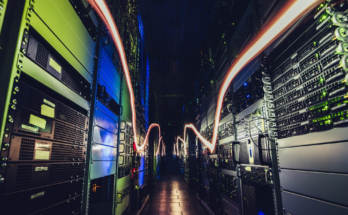
Introduction
In today’s world, a safe and healthy environment has become an essential need for the survival of all living beings. Then we understand The Importance of a Secure Environment and Effective Pollution Control Policies. Unfortunately, pollution has become a significant threat to the environment and human health. Pollution is the presence of harmful substances in the air, water, soil, or noise, that are released by human activities such as industrial production, transportation, agriculture, and waste disposal.
Pollution has far-reaching consequences on the environment, including climate change, loss of biodiversity, and depletion of the ozone layer. These consequences have a direct impact on human health, leading to respiratory diseases, cancer, and other illnesses.
In response to this growing problem, pollution control policies have been implemented by governments and organizations worldwide. These policies aim to limit the release of harmful substances into the environment and ensure that human health is protected.
The role of pollution control policies is not limited to safeguarding the environment and human health; they also have significant economic benefits. By controlling pollution, industries can save on costs associated with environmental damage and prevent future liabilities. Additionally, pollution control policies can create jobs and promote sustainable economic growth.
In this article, we will explore the importance of a secure environment and effective pollution control policies. We will discuss the different types and causes of pollution, the impact of pollution on the environment and human health, the importance of pollution control policies, and the challenges involved in their implementation. We will also examine case studies of successful pollution control policies, the role of individuals in pollution control, the importance of international cooperation, innovative approaches to pollution control, and the benefits of a clean environment.
Understanding Pollution
Pollution is a major environmental issue that affects the quality of air, water, soil, and noise. Here are the different types of pollution:
- Air pollution: Air pollution is caused by the release of harmful substances into the atmosphere, such as carbon monoxide, nitrogen oxides, sulfur dioxide, and particulate matter. These pollutants can come from various sources, including industrial activities, transportation, and burning of fossil fuels.
- Water pollution: Water pollution is caused by the presence of harmful substances in bodies of water, such as lakes, rivers, oceans, and groundwater. These pollutants can come from sources such as industrial and agricultural activities, sewage and wastewater discharge, and oil spills.
- Soil pollution: Soil pollution occurs when toxic chemicals, such as heavy metals, pesticides, and industrial waste, are released into the soil. This can occur through improper disposal of hazardous waste, chemical spills, and agricultural activities.
- Noise pollution: Noise pollution is caused by excessive noise levels that can be harmful to human health and wildlife. Sources of noise pollution include transportation, construction, and industrial activities.
The causes of pollution are varied and can be attributed to human activities. Here are some of the major causes of pollution:
- Industrial activities: Industries such as manufacturing, mining, and oil and gas production are major sources of pollution. They release harmful chemicals and pollutants into the air, water, and soil.
- Transportation: Vehicles such as cars, trucks, and planes release pollutants into the air, contributing to air pollution. Shipping and boating activities also contribute to water pollution.
- Agriculture: The use of fertilizers and pesticides in agriculture can lead to soil and water pollution.
- Waste disposal: Improper disposal of waste, including plastics, electronic waste, and hazardous materials, can lead to pollution of the environment.
Pollution has significant effects on the environment and human health. Here are some of the impacts of pollution:
- Climate change: Pollution contributes to the emission of greenhouse gases, which lead to climate change and global warming.
- Biodiversity loss: Pollution can lead to the destruction of ecosystems and the loss of plant and animal species.
- Ozone depletion: Pollution can contribute to the depletion of the ozone layer, leading to increased exposure to harmful UV radiation.
Understanding the types, causes, and effects of pollution is crucial to developing effective pollution control policies. In the next section, we will explore the importance of pollution control policies in safeguarding the environment and human health.
The Importance of The Importance of a Secure Environment and Effective Pollution Control Policies
Pollution control policies are essential to safeguarding the environment and human health. These policies are put in place to regulate and control the release of harmful pollutants into the environment. Here are some reasons why pollution control policies are crucial:
- Regulations and standards: Pollution control policies help to establish regulations and standards that set limits on the amount of pollutants that can be released into the environment. These regulations and standards ensure that industries and individuals take responsibility for their impact on the environment and human health.
- Examples of effective policies: Many countries have implemented effective pollution control policies. For example, in the United States, the Clean Air Act and the Clean Water Act have led to significant improvements in air and water quality. In Europe, the European Union has implemented policies such as the Emissions Trading System, which has helped to reduce greenhouse gas emissions.
- Economic benefits: Pollution control policies can have significant economic benefits. For example, industries can save on costs associated with environmental damage and future liabilities. Additionally, pollution control policies can create jobs and promote sustainable economic growth.
Pollution control policies can take different forms, including regulations, standards, and market-based mechanisms. Here are some examples of effective pollution control policies in different countries:
- The Clean Air Act (United States): The Clean Air Act was enacted in 1970 and has been amended several times since then. The act regulates emissions of pollutants such as sulfur dioxide, nitrogen oxides, and particulate matter. It has led to significant improvements in air quality and has reduced health risks associated with air pollution.
- The Water Framework Directive (European Union): The Water Framework Directive was adopted in 2000 and aims to protect and improve water quality across the European Union. It sets standards for water quality and establishes a framework for water management.
- The Emissions Trading System (European Union): The Emissions Trading System is a market-based mechanism that aims to reduce greenhouse gas emissions across the European Union. It works by setting a cap on emissions and allowing companies to buy and sell emissions allowances.
- The National Green Tribunal (India): The National Green Tribunal was established in 2010 and serves as a specialized court for environmental disputes in India. It has been instrumental in enforcing environmental regulations and holding polluters accountable for their actions.
Effective pollution control policies require cooperation and coordination at the international level. International agreements such as the Paris Agreement on climate change have been crucial in addressing global environmental challenges. In the next section, we will explore the challenges involved in implementing pollution control policies.
Developing Effective Pollution Control Policies
Developing effective pollution control policies requires a comprehensive approach that involves multiple stakeholders. Here are some factors to consider The Importance of a Secure Environment and Effective Pollution Control Policies:
- A comprehensive approach: Pollution control policies should take a comprehensive approach that addresses all types of pollution and their sources. This approach should also consider the environmental and health impacts of pollution, as well as the economic and social factors that contribute to pollution.
- The role of technology: Technology plays a critical role in pollution control. Advanced technologies, such as air and water purification systems, can help to reduce emissions and improve environmental quality. Governments should encourage the development and adoption of such technologies through incentives and regulations.
- Public participation: Public participation is essential in the development of pollution control policies. Members of the public, including community groups and environmental organizations, can provide valuable input on the impacts of pollution on their communities and help to shape policy decisions.
Effective pollution control policies must also take into account the unique environmental and social contexts of different regions and communities. For example, policies that work in developed countries may not be effective in developing countries, where access to technology and resources may be limited. In addition, policies must be flexible enough to adapt to changing environmental conditions and emerging technologies.
International cooperation is also crucial in addressing global environmental challenges. International agreements, such as the Stockholm Convention on Persistent Organic Pollutants and the Basel Convention on Hazardous Waste, have been instrumental in reducing the global impact of pollution.
In the next section, we will explore the benefits of effective pollution control policies for the environment and human health.
Challenges in Implementing Pollution Control Policies
While pollution control policies are crucial for protecting the environment and human health, there are several challenges involved in their implementation. Here are some of the main challenges about The Importance of a Secure Environment and Effective Pollution Control Policies:
- Political and economic factors: The implementation of pollution control policies can be hindered by political and economic factors. For example, industries and governments may resist regulations that are perceived as burdensome or costly. In addition, governments may prioritize economic growth over environmental protection, leading to weaker regulations or ineffective enforcement.
- Enforcement of regulations and standards: Even when regulations and standards are in place, enforcing them can be difficult. In many cases, enforcement agencies may lack the resources or political support to effectively monitor and penalize violators. This can lead to a lack of compliance with regulations and ongoing environmental damage.
- Balancing environmental protection with economic growth: One of the biggest challenges in implementing pollution control policies is finding the right balance between environmental protection and economic growth. While strong environmental regulations can help to protect the environment, they can also impose costs on businesses and individuals. This can lead to resistance to regulations and pushback from industries.
To overcome these challenges, governments and policymakers must take a collaborative and multi-stakeholder approach to pollution control. This can involve working with industry representatives, environmental groups, and community organizations to develop policies that are effective, equitable, and sustainable.
Additionally, innovative solutions can be explored to address these challenges. For example, market-based mechanisms such as emissions trading systems can provide incentives for companies to reduce emissions while also promoting economic growth. Public-private partnerships can also be established to support the development and adoption of new technologies for pollution control.
Case Studies of Successful Secure Environment and Effective Pollution Control Policies
While implementing pollution control policies can be challenging, there have been several successful case studies from around the world. Here are three examples understanding The Importance of a Secure Environment and Effective Pollution Control Policies:
- The Clean Air Act in the United States: The Clean Air Act, enacted in 1963 and amended in 1970, is one of the most successful pollution control policies in the world. The act regulates air pollution from both stationary and mobile sources and has led to significant improvements in air quality in the United States. For example, between 1990 and 2019, the levels of six common air pollutants regulated by the act decreased by 77%.
- The Kyoto Protocol on Climate Change: The Kyoto Protocol, adopted in 1997, is an international agreement aimed at reducing greenhouse gas emissions. The protocol set binding emission reduction targets for developed countries and established mechanisms for emissions trading and clean development. While the protocol has faced some criticism for not being comprehensive enough, it has been successful in reducing emissions in many countries.
- The Plastic Bag Ban in Rwanda: In 2008, Rwanda became one of the first countries in the world to ban single-use plastic bags. The ban has been successful in reducing plastic waste and improving environmental quality in the country. According to the United Nations, the ban has also had positive economic and social impacts, creating opportunities for small businesses to produce alternative products and reducing health risks associated with plastic waste.
These case studies demonstrate that effective pollution control policies can have significant environmental, economic, and social benefits. While the specific policies and approaches may vary depending on the context and the type of pollution, there are common factors that contribute to success. These factors include political leadership, public participation, and collaboration among stakeholders.
In the next section, we will explore the economic benefits of pollution control policies.
The Role of Individuals in Pollution Control
While pollution control policies are essential for addressing environmental issues, individuals also have an important role to play in reducing pollution. Here are some key considerations related to individual actions in pollution control:
- The impact of individual actions on the environment: Although individual actions may seem small in comparison to large-scale industrial pollution, they can still have a significant impact on the environment. For example, everyday activities such as driving, using electricity, and disposing of waste can contribute to greenhouse gas emissions, air pollution, and water pollution.
- Simple ways individuals can reduce their carbon footprint: There are several simple actions individuals can take to reduce their carbon footprint and contribute to pollution control. These actions include reducing energy use in the home, using public transportation or carpooling, reducing meat consumption, and properly disposing of waste. By making these changes, individuals can not only reduce pollution but also save money and improve their health.
- The need for individual responsibility in pollution control: While pollution control policies are important, individual responsibility is also crucial for achieving sustainable and equitable outcomes. By taking actions to reduce their own pollution footprint, individuals can set an example for others and contribute to a culture of environmental awareness and action. Additionally, by advocating for stronger pollution control policies and supporting political leaders who prioritize environmental protection, individuals can help to create systemic change.
By taking these actions, individuals can contribute to the collective effort to address environmental issues and improve the health and wellbeing of themselves and future generations. While individual actions alone may not be sufficient to address the scale of pollution problems, they are an essential component of a comprehensive and effective approach to pollution control.
The Importance of International Cooperation
Pollution is a global problem that requires international cooperation to effectively address. Here are some key considerations related to the importance of international cooperation in pollution control:
- The need for global action on pollution control: Pollution does not respect national borders and affects communities and ecosystems around the world. Therefore, addressing pollution requires global action and coordination. Without international cooperation, pollution problems in one country may have negative impacts on other countries and ultimately undermine efforts to achieve sustainable development.
- International agreements and treaties on pollution control: Over the past several decades, there have been numerous international agreements and treaties aimed at addressing pollution. For example, the Paris Agreement on climate change, the Stockholm Convention on persistent organic pollutants, and the Montreal Protocol on substances that deplete the ozone layer. These agreements provide a framework for countries to work together to address pollution and establish goals and targets for reducing pollution emissions.
- The role of international organizations in promoting pollution control: There are several international organizations that play a role in promoting pollution control and coordinating global action. These include the United Nations Environment Programme (UNEP), the World Health Organization (WHO), and the Intergovernmental Panel on Climate Change (IPCC). These organizations provide research, guidance, and technical assistance to countries in their efforts to reduce pollution emissions and promote sustainable development.
In summary, international cooperation is essential for effectively addressing pollution and achieving sustainable development. By working together through international agreements, treaties, and organizations, countries can share knowledge, resources, and best practices to reduce pollution emissions and promote environmental sustainability on a global scale.
Innovative Approaches to Pollution Control
Innovation is key to developing effective solutions for pollution control. Here are some innovative approaches that are gaining traction:
- Green technologies and sustainable practices: Green technologies such as solar panels, wind turbines, and electric vehicles are gaining popularity as alternatives to fossil fuels. These technologies help reduce greenhouse gas emissions and other pollutants. Additionally, sustainable practices such as green buildings, organic farming, and sustainable forestry are gaining traction as ways to reduce pollution and promote sustainable development.
- The circular economy and waste reduction: The circular economy is an economic model that aims to reduce waste and keep resources in use for as long as possible. This approach focuses on recycling and reusing materials to minimize waste and pollution. Waste reduction efforts, such as composting and reducing single-use plastics, are also gaining momentum as ways to reduce pollution.
- The role of education and awareness in promoting pollution control: Education and awareness campaigns are critical for promoting pollution control. By increasing public knowledge of pollution issues and ways to reduce pollution, individuals can take action to reduce their own impact on the environment. Education initiatives can include programs in schools, public information campaigns, and outreach to communities most affected by pollution.
These innovative approaches are critical for reducing pollution and promoting sustainable development. By adopting new technologies and sustainable practices, reducing waste, and promoting education and awareness, we can work towards a cleaner, healthier planet for all.
The Benefits of a Clean Environment
A clean environment is essential for our overall health and wellbeing. Here are some of the benefits of having a clean environment:
- Improved health and wellbeing: Pollution can have a significant impact on our health, leading to respiratory problems, cancer, and other illnesses. A clean environment, on the other hand, can help prevent these health problems and promote overall wellbeing. Clean air and water, for example, are critical for maintaining good health.
- Economic benefits of environmental protection: A clean environment can also bring economic benefits. For example, a healthy environment can attract tourism and create jobs in eco-friendly industries. Additionally, reducing pollution can lead to lower healthcare costs and increased productivity, as people are less likely to be sick and miss work.
- The role of a clean environment in promoting social justice: A clean environment is essential for promoting social justice, as pollution often disproportionately affects marginalized communities. By working towards a clean environment, we can promote environmental justice and ensure that everyone has access to clean air, water, and land.
Overall, a clean environment is critical for our health, wellbeing, and economic prosperity. By working towards pollution control and environmental protection, we can create a cleaner, healthier, and more just world for everyone.
Conclusion
In conclusion, it is clear that The Importance of a Secure Environment and Effective Pollution Control Policies are crucial for the health and wellbeing of our planet and its inhabitants. Pollution can have devastating effects on our environment, leading to climate change, loss of biodiversity, and other harmful consequences. However, by taking a comprehensive approach to pollution control, we can work towards a cleaner, healthier, and more sustainable world.
Individuals, governments, and international organizations all have a role to play in promoting environmental protection. From reducing our own carbon footprint to implementing effective pollution control policies, we all have a responsibility to work towards a cleaner and more sustainable future. It is essential that we prioritize environmental protection and work towards a cleaner and healthier world for ourselves and future generations.
While there are challenges in implementing pollution control policies, such as political and economic factors, we cannot afford to ignore the importance of environmental protection. The benefits of a clean environment, such as improved health and wellbeing, economic prosperity, and social justice, are too significant to ignore.
In conclusion, it is time for us to take action and work towards a cleaner, healthier, and more sustainable world. By prioritizing environmental protection and working together towards a common goal, we can create a brighter future for ourselves and future generations. Let us all do our part to protect our planet and ensure a secure environment for all.
FAQs
Q: What is pollution?
A: Pollution is the presence or introduction of harmful substances into the environment, including air, water, and soil. Pollution can have negative effects on human health, wildlife, and the environment as a whole.
Q: How does pollution affect human health?
A: Pollution can have serious impacts on human health, including respiratory diseases, neurological disorders, and cancer. Exposure to pollutants in the environment can also harm developing fetuses, leading to birth defects and developmental problems.
Q: What are some examples of effective pollution control policies?
A: Effective pollution control policies can take many forms, including regulations on industrial emissions, limits on car emissions, and bans on single-use plastics. Examples of effective pollution control policies include the Clean Air Act in the United States, the Kyoto Protocol on Climate Change, and the Plastic Bag Ban in Rwanda.
Q: How can individuals contribute to pollution control?
A: Individuals can make a significant impact on pollution control by reducing their own carbon footprint through actions such as reducing energy consumption, driving less, and using reusable bags and containers. Supporting companies and policies that prioritize environmental protection is also important.
Q: What is the role of technology in pollution control?
A: Technology plays an important role in pollution control, with innovations such as renewable energy, electric cars, and sustainable agricultural practices helping to reduce harmful emissions and waste. Investment in green technology can help to promote a cleaner and more sustainable future.
Q: What are the economic The Importance of a Secure Environment and Effective Pollution Control Policies?
A: While there may be costs associated with implementing pollution control policies, such as investments in green technology or enforcement of regulations, there are also significant economic benefits. These can include job creation in green industries, savings on healthcare costs due to improved air and water quality, and increased tourism and recreation opportunities in areas with a cleaner environment.


